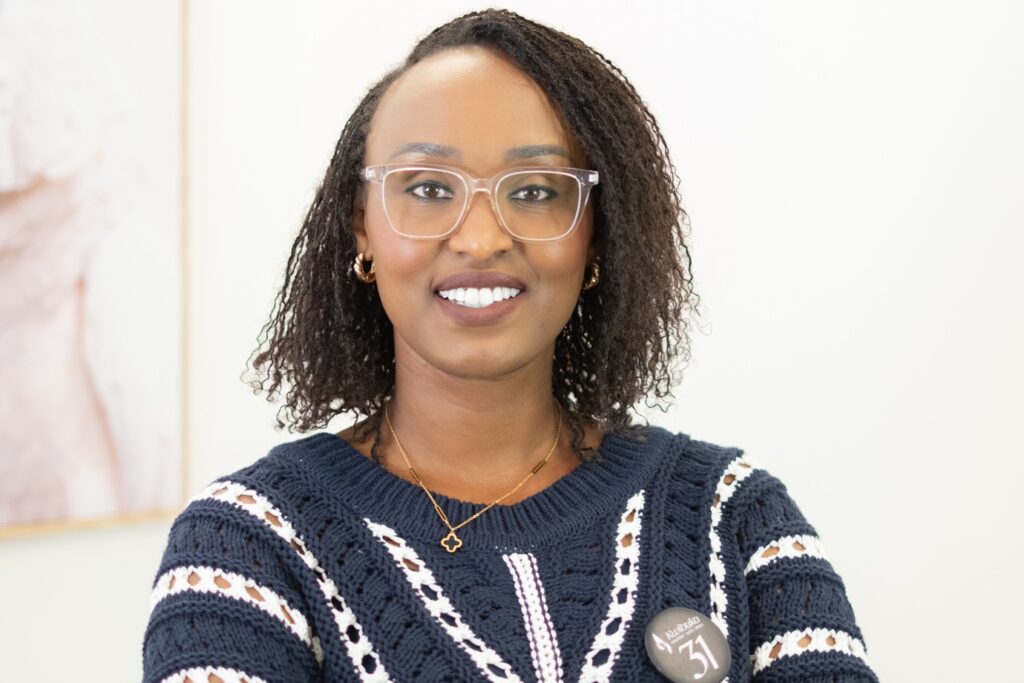I was just 14 years old when my family was targeted during the 1994 Rwanda Genocide against the Tutsi. The Rwanda genocide in 1994 was a devastating hundred-day campaign of mass violence in which over 800,000 Tutsi people — including all the members of my immediate family — were systematically murdered. Some moderate Hutus were also murdered.
It remains one of the most harrowing chapters of human history, marked by unimaginable loss and resilience.
Coming to terms with being the sole survivor of my family, and having directly witnessed their murders as a vulnerable and traumatised teenager, is something that has indelibly marked the entire shape of my life.
But, it’s only through such profound loss that I’ve been able to find and use my voice to heal, educate, and inspire. For me, every time I give voice to my pain, I take a step towards disempowering it. I believe we all have a responsibility to proactively work against and speak out against hate, racism, and discrimination.
As a person from a refugee background now living in Melbourne, freedom is a value I hold closely to my chest.
My survival depended not only on having a safe place to escape to after the violence of genocide, but on finding belonging in new, unfamiliar places. I lost my entire family as well as my homeland, and for me, an essential part of my healing was having the resources and ability to rebuild a sense of safety, identity, and connection in a new home.
The Asylum Seeker Resource Centre has been helpful in highlighting my story and furthering my advocacy through its refugee leadership training program, including advocacy and speaking, providing a sense of safety and dignity when trust and belonging sometimes felt unattainable.
It’s in welcoming spaces such as these that someone traumatised by hatred might begin to believe in kindness again, slowly rebuilding their sense of self and purpose among people who see and value them beyond their trauma.
I urge everyday Australians to play a meaningful role in teaching, healing, and building communities to support refugees. You can do this by choosing to listen to the stories of displaced people with empathy, amplifying refugee voices, standing up against racism and misinformation, and actively welcoming newcomers into your neighbourhoods, schools, and workplaces.
But as social cohesion in Australia faces growing fractures — fuelled by fear and misinformation — it might not always seem so simple. Australia faces challenges ahead when we look towards being the best possible place for somebody to make a fresh start after fleeing violence.
The risks aren’t only restricted to hateful policies or politics, but in everyday acts of exclusion, in the apathy that allows harmful narratives to flourish, and in the silence of bystanders. Survivors of atrocity like me know too well where unchecked hate can lead. In times where macropolitics are cheering on tactics to deliberately divide communities, Australians must remember that the strength of our multicultural society has and always will rest in our diversity, and solidarity with those who have suffered.
I believe true freedom is more than just the absence of violence — it’s the presence of dignity. For refugees and people seeking asylum, diversity in community means creating spaces where difference is celebrated and cherished, not punished. For those who have survived violence and genocide, a community can and should act as a direct counter to the hatred which once sought to erase them.
Every day, Australians have the opportunity to recognise the powerful, life-saving act of welcoming people into communities where they can belong, contribute, and heal.
I carry my family’s memory with me in everything I do — not as a weight, but as a source of strength and purpose. In honouring their lives, I have dedicated mine to fostering understanding, compassion, and how small acts of kindness can ladder up into a community effort to stamp out big acts of hatred. Sharing my story is both a personal act of healing, and a reminder to others that the consequences of silence and indifference are far too great to bear.


